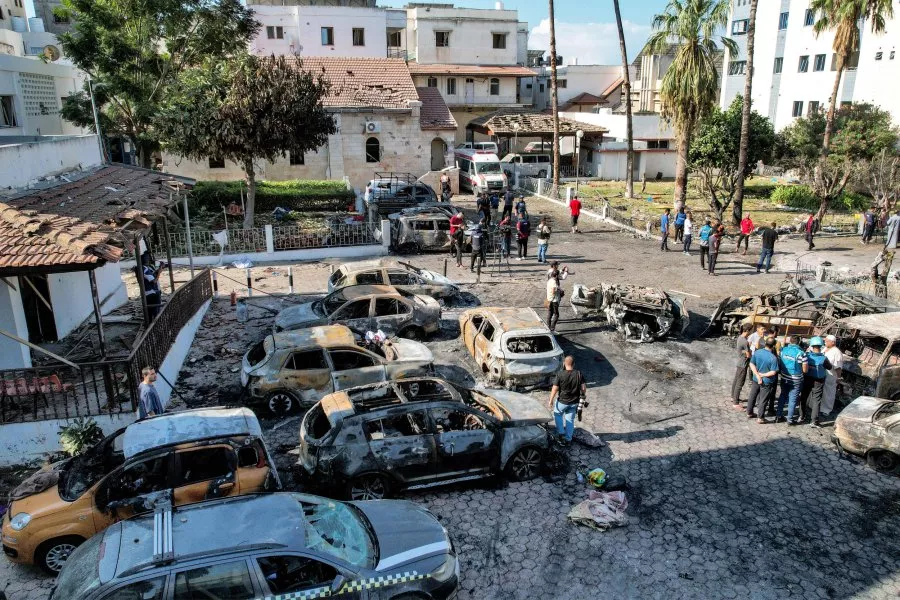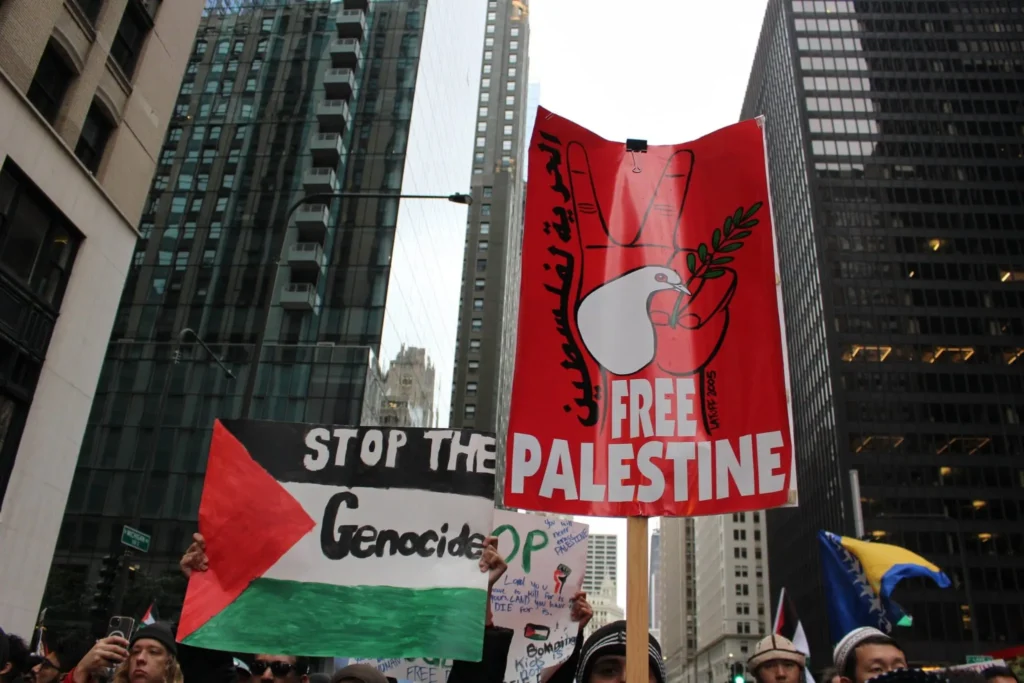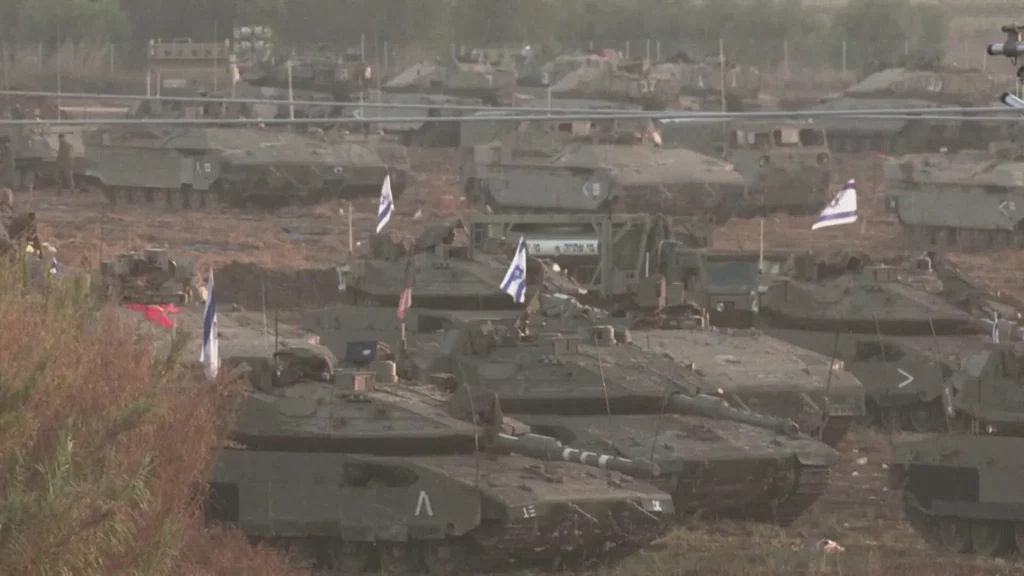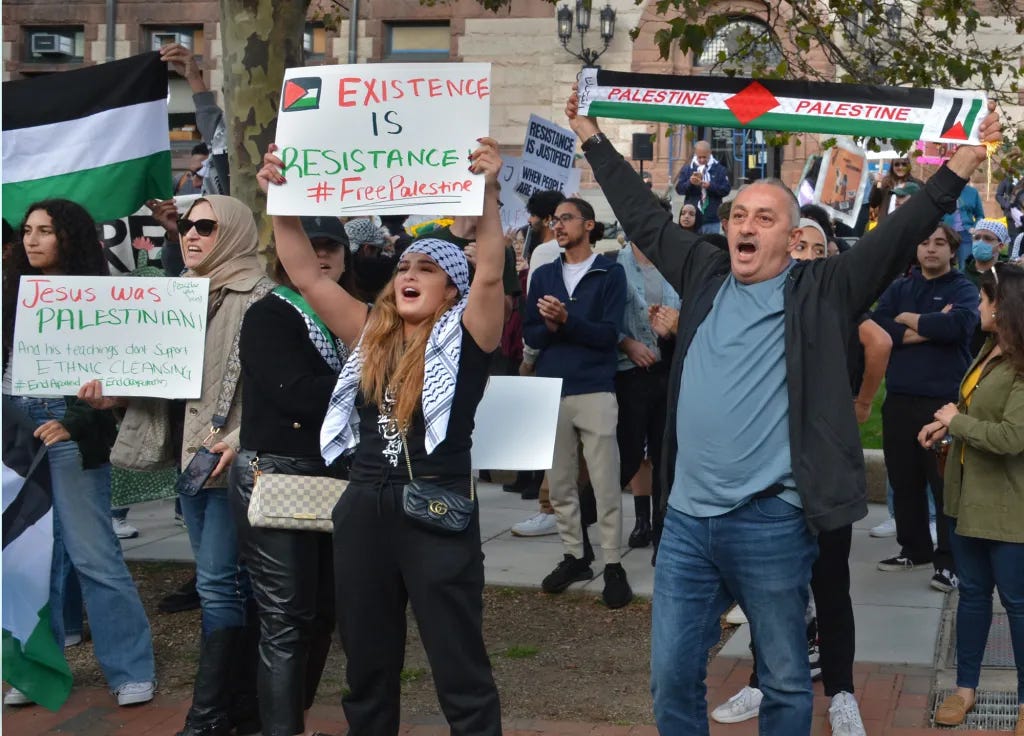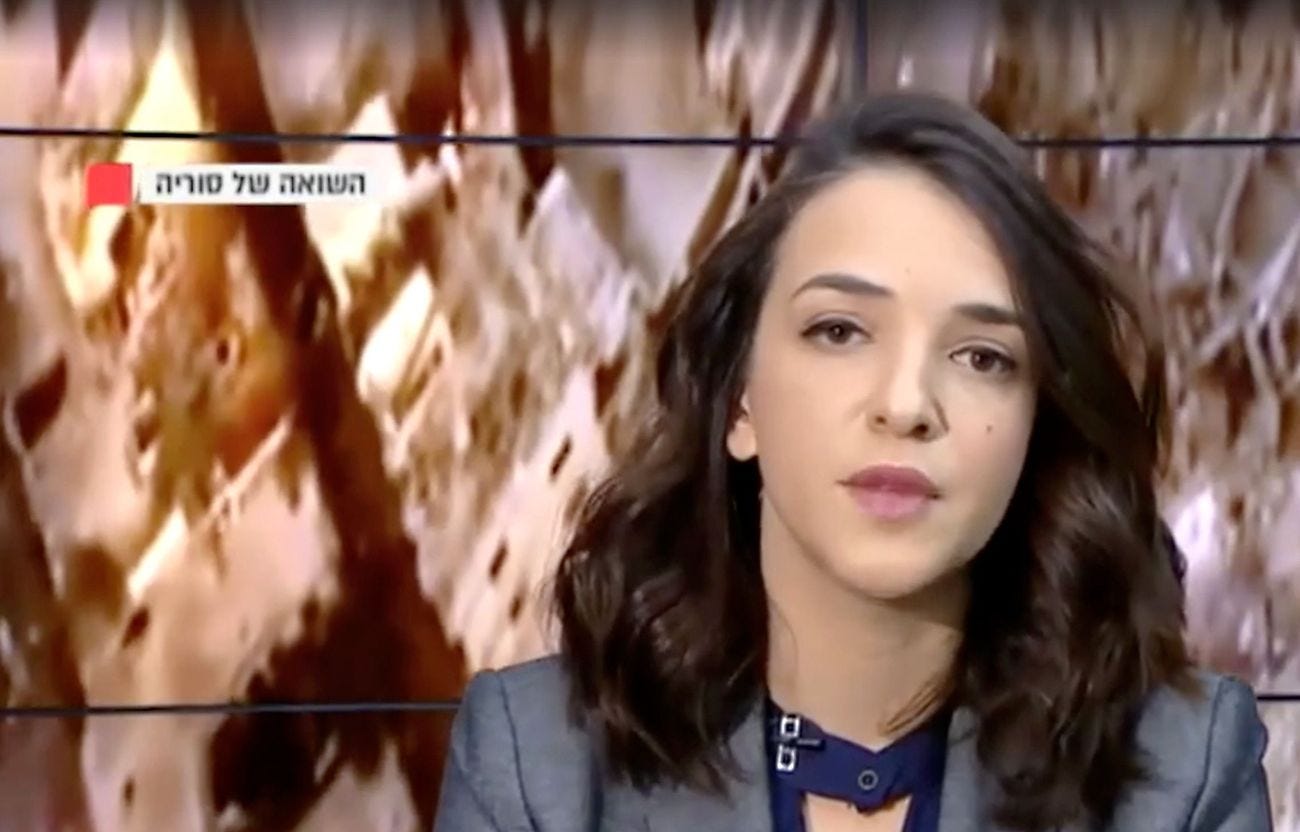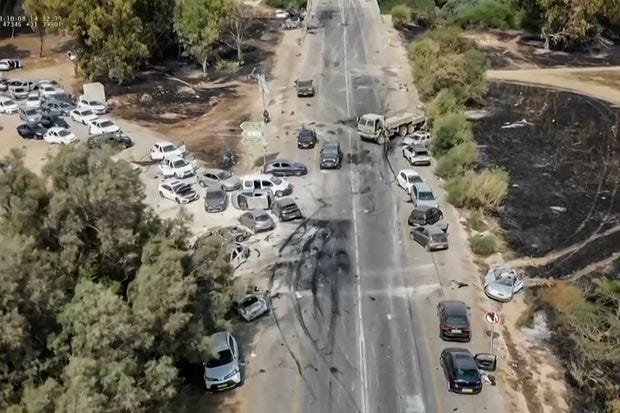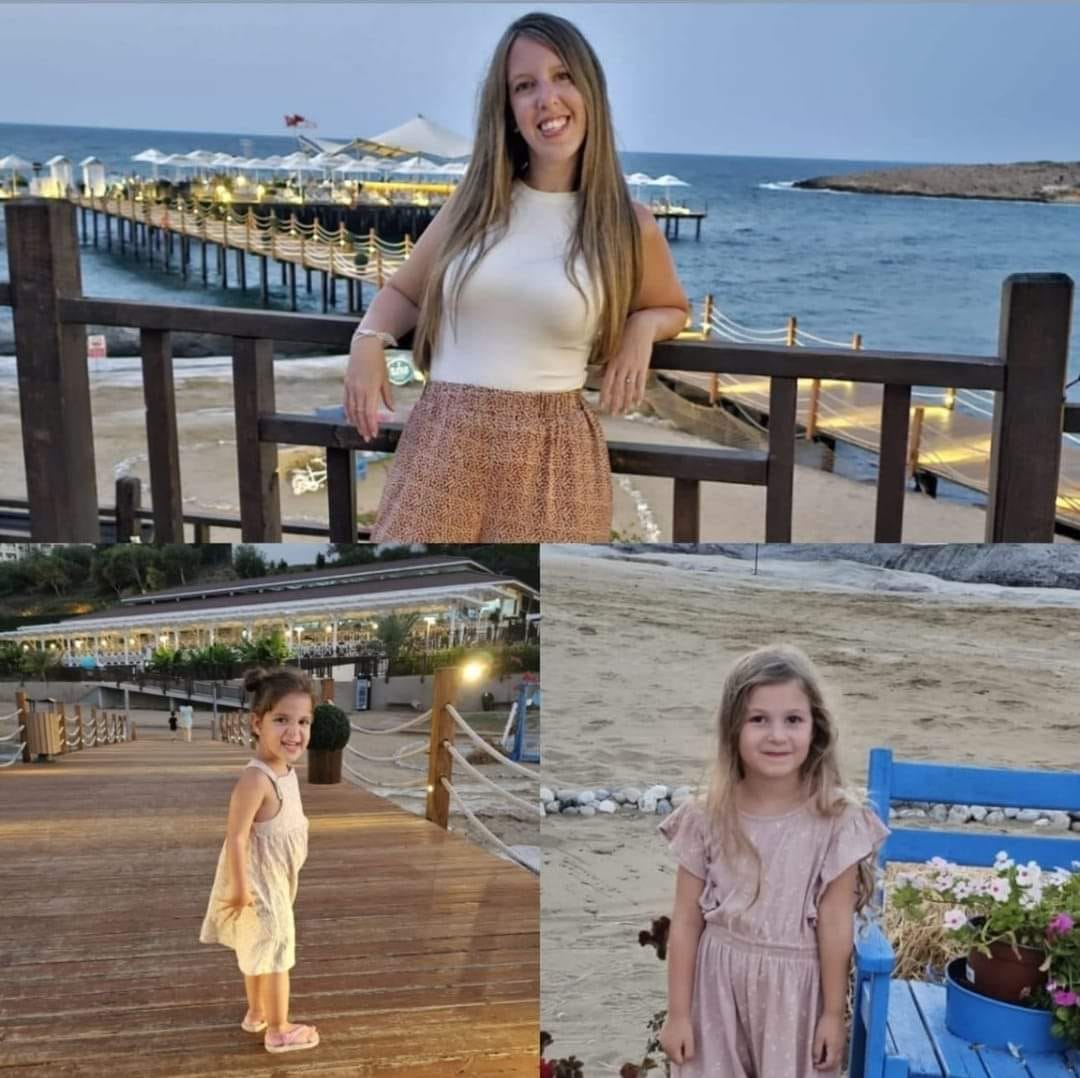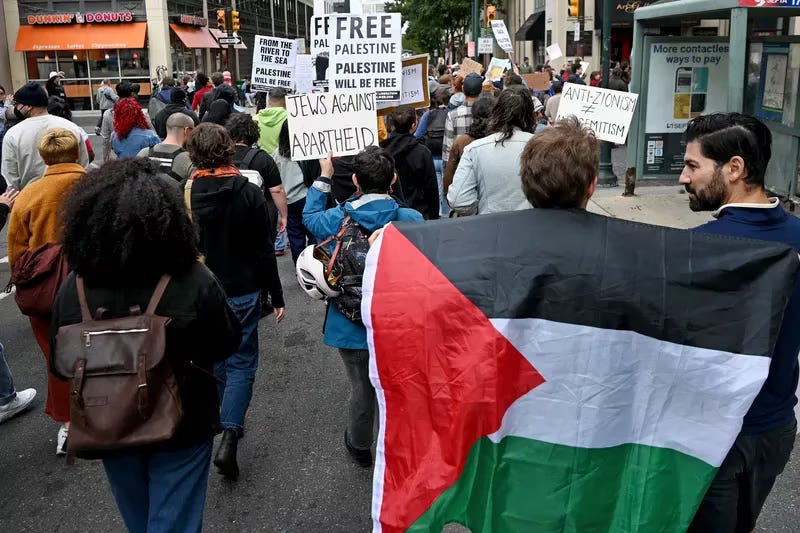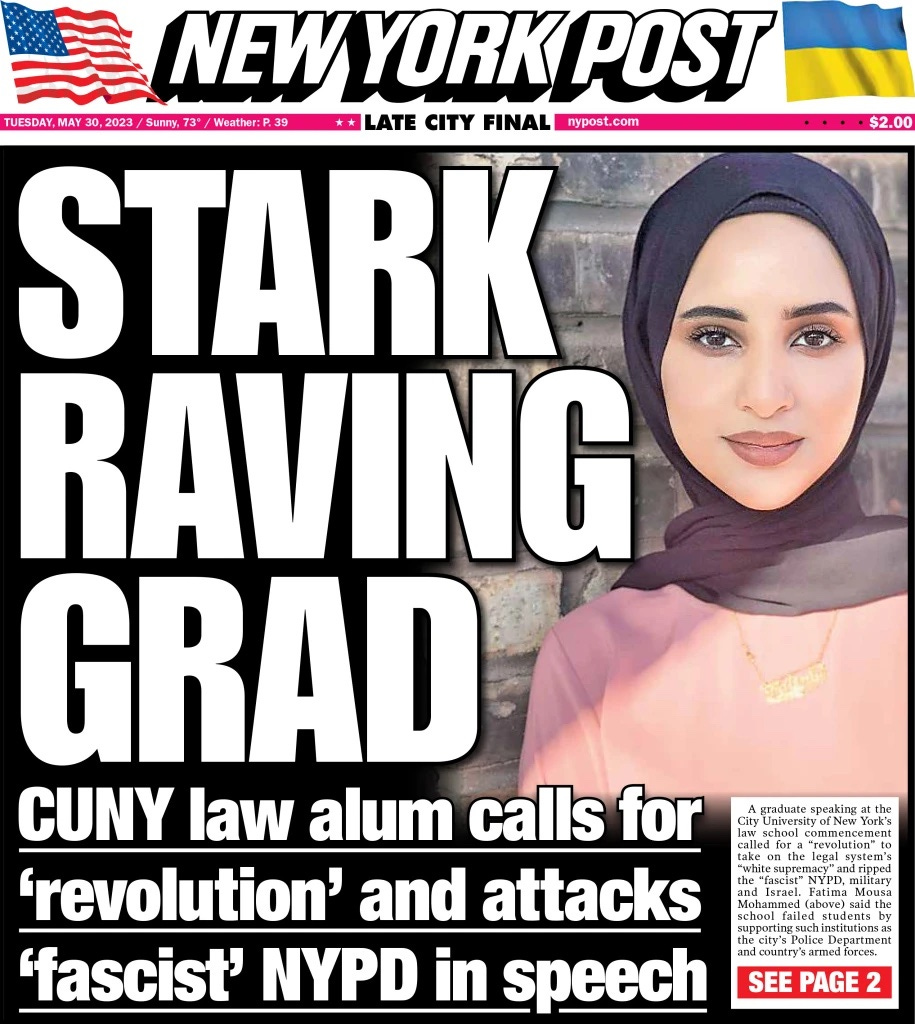What are the “rules of war” for media?
Alison Leigh Cowan, a veteran of BusinessWeek and The New York Times, puts the Times in the crosshairs this week for its coverage of Gaza. In an unsettling piece in Commentary, she cites a pair of “grave journalistic errors.” Noting she had spent 27 years as a reporter and editor at the paper, she observes that the outlet’s “brazen self-assuredness and moral blindness in moments like these is breaking my heart.”
The issues she raises are troubling ones for the Times, in particular, and for journalism in general.
First, Cowan blasts the paper for rehiring a freelance videographer, Soliman Hijjy, an admirer of Adolf Hitler. On Facebook, a few years ago, he had posted such messages as, “How great you are, Hitler.” As reported by National Review, he also posted a photo of himself in the Middle East with the caption: “In a state of harmony as Hitler was during the Holocaust.” That same year, the NR reported, he also said he was “in tune like Hitler during the Holocaust.”
For such sins, the Times had fired Hijjy a year ago. But, desperate for someone who could file material from Gaza, the paper turned to him again after the Hamas atrocities of Oct. 7 and it got what it asked for, sympathetic coverage from the Palestinian side. Hijjy’s work had been saluted in publications such as The Electronic Intifada, a Chicago-based outfit that has been described as a “cyberpropaganda” source for Palestinians. Presumably, the Times editors saw his pro-Palestinian work as balancing its other coverage.
Never mind that Hijjy was lambasted by Israel’s ambassador to the United Nations, Gilad Erdan. Erdan derided the Times for spreading antisemitism through such hires: “The @nytimes has just rehired a NAZI. Let that sink in. Soliman Hijjy praises Hitler, and the NYT rehired him,” Erdan posted on X. “We all saw how the NYT immediately parroted Hamas’ lies regarding the al-Ahli hospital (which Hijjy contributed to) and still refuses to retract these fabrications.”
Indeed, the inaccurate Oct. 17 hospital explosion coverage — including the videographer’s efforts — reflects terribly on the Times and other media outlets influenced by it. It also draws Cowan’s fury and disappointment.
As she recounts, the Times issued an alert that day, citing the anything-but-independent Palestinian Health Ministry in Gaza in saying “an Israeli strike hit the Ahli Arab Hospital in Gaza City, killing at least 200 Palestinians.” The paper repeatedly used the words “massacre” and “carnage,” Cowan noted.
The loaded language and mislaid blame helped fuel a furor in Arab world and undergirded Palestinian protests on campuses across the U.S. It sank a meeting between President Biden and Arab leaders.
Cowan criticizes the paper for updates larded with such potent terms. They characterized the “attack” as “staggering,” “horrific” and “devastating,” and a possible act of “genocide.” Hardly the neutral language the Times claims to prefer.
Then, too much later, came the corrections. A day after the blast, the paper added a correction to an update, saying: “An earlier version of this article described incorrectly a video filmed by a woman at the hospital after the blast. The hospital itself was not ruined; its parking lot was damaged most heavily in the blast.”
Subsequent reports in the Times and elsewhere carried the news that U.S. (and Israeli) authorities had determined that the “strike” at the hospital was in fact the effect of a misfired Islamic Jihad rocket. Because it relied on Hamas, the early reporting was simply wrong. Of course, the damage wrought by the poor reporting had been done and Hamas had enjoyed a propaganda boon.
After that, it took the newspaper six days to issue its wan mea culpa. It published an editor’s note on Oct. 23, saying it had relied too heavily on Hamas sources, and didn’t make it clear that its information was unverified – i.e., it had run material without knowing it was true or not, a cardinal sin in journalism. In language far more subdued than the terms used in the hospital explosion reports, the note said: “Times editors should have taken more care with the initial presentation, and been more explicit about what information could be verified.” No apology, no statement of regret.
It may be that journalists can’t be expected to avoid taking sides in a war. That’s especially the case when they report on atrocities such as the Oct. 7 horrors committed by Hamas in southern Israel – events that truly deserve to be called massacres. If they have hearts, they can’t avoid being appalled by the ugliness, as Graeme Wood of The Atlantic was when he viewed video of the attacks that originated with Hamas and was then screen for reporters by the Israel Defense Forces.
“The videos show pure, predatory sadism; no effort to spare those who pose no threat; and an eagerness to kill nearly matched by eagerness to disfigure the bodies of the victims,” Wood reported. “In several clips, the Hamas killers fire shots into the heads of people who are already dead. They count corpses, taking their time, and then shoot them again. Some of the clips I had not previously seen simply show the victims in a state of terror as they wait to be murdered, or covered with bits of their friends and loved ones as they are loaded into trucks and brought to Gaza as hostages.”
Were those videos propaganda by the IDF? Clearly, they didn’t originate with the Israelis and weren’t false. Certainly, such imagery reinforced the view that Israelis had been subjected to extraordinary viciousness. And certainly, the IDF released the assemblage of them – albeit only to journalists who were not allowed to record them with cameras – in hopes that the screening would engender support for the Israeli military actions to come.
But that’s not the same as the lies Hamas fomented over the hospital explosion. Tragically and disgustingly, the videos were genuine.
Journalists, especially those covering wars, need to walk fine lines. Thus, many avoid using terms such as “terrorist,” instead opting for the seemingly neutral “militants.” However, what should one reasonably call the Hamas “fighters” who conducted the Oct. 7 massacres? Clearly, those men murdered innocents and clearly they were using terror as their weapon of choice. Also, Hamas is regarded by the U.S. and other countries as a terrorist group.
Not surprisingly, the neutral language has drawn criticism. Rachael Thomas, a member of the Canadian Parliament, slammed the Canadian Broadcasting Company for failing to take sides against the horrors of Oct. 7 and for avoiding terms such as “terrorist.” Her demand for a review of the CBC’s coverage failed after some members argued – sensibly – that Parliament shouldn’t police what members of a free press do.
In fairness, war journalists have to be mindful of the language they use, as well as the stories they tell. Hamas, in particular, has a history of intimidating journalists who stray too far from their views of the conflict. The group’s tactics have in the past drawn condemnation from the Foreign Press Association. For their own safety, journalists have to strive toward neutrality, at least publicly.
Even as many journalists develop sympathies, the best can be relied on to deliver true and accurate accounts and fair analysis. Journalist-turned-commentator Thomas Friedman supports Israel’s right to exist, for instance, but he also takes issue regularly with the country’s policies. Indeed, he fears that impending military action in Gaza by the IDF could backfire disastrously. And Bret Stephens lays the blame for the many deaths – recently and to come — squarely on the heads of Hamas, a conclusion that even Palestinian sympathizers would be hard-pressed to deny, if they are intellectually honest.
Both Friedman and Stephens offer their insights as columnists for The New York Times. Before becoming an opinion-writer, Friedman was a distinguished shoe-leather journalist covering the Mideast. For his part, before joining the Times, Stephens was a foreign affairs columnist and deputy editorial page editor at The Wall Street Journal, where he won the Pulitzer Prize for Commentary in 2013. From 2002 to 2004, he was editor-in-chief of The Jerusalem Post.
No Hitler-loving videographer could equal their work, of course.
Cowan acknowledges the good work of many war correspondents, but she also sagely warns about the dangers of swallowing inaccuracies any side might provide. “We all stand in the debt of courageous correspondents who pursue the most dangerous and searing wartime stories out there,” she writes. “But journalism’s warriors must stick to the facts and leave the making of propaganda to someone else.”





